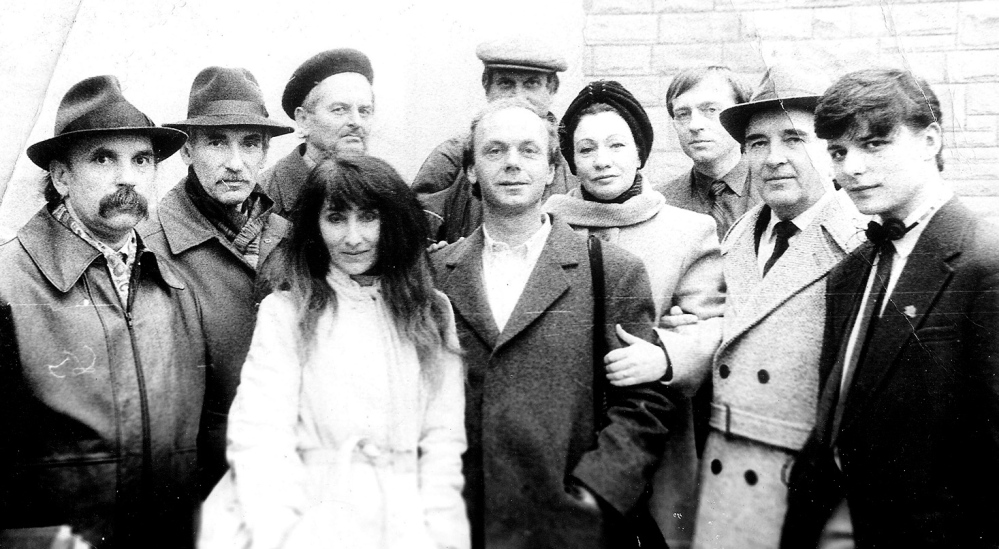The demonstrations in Kiev’s Independence Square and the toppling of the country’s government last week transported me back to a time, just before the Soviet Union collapsed in 1991, when I was in Ukraine helping to train democratic activists on how to run political campaigns.
The trip was full of inspiring memories of people facing the greatest odds, working with almost no support, defiantly standing up against the enormous power of the Soviets.
When the Berlin Wall came crashing down and the Soviet Union unraveled, Americans everywhere celebrated the end of the Cold War. For places such as Ukraine, which had been under the control of the Soviet Union since 1919, however, those events merely opened the door to a long series of steps toward independence.
Although many Ukrainians are of Russian descent, the hatred of the Soviet Union and now Russian influence runs deep. Out of it arose, in the late 1980s, a democratic movement called the Ruhk. While its leaders had been driven underground, it gained widespread public support every day and managed to harass the Russians with great delight.
Their tactics included human chains and demonstrations, but their main weapon was food. Ukraine is the breadbasket of Russia, and, while it is dependent upon the Russians for fuel, Russians don’t eat without Ukrainian food. So the Ruhk stopped trainloads of food bound for Russia.
In my first day in Kiev, three Ruhk organizers drove me around the overcast city, with four of us packed into a small black Soviet-made Fiat. They whisked me to a series of small vacant lots. At every stop, after a short silence, the translator would say, “This is the site of one our beloved churches,” each named for a patron saint. All had been dynamited by the Soviets.
Our day of touring in Kiev ended with a walk through a block-long food market stacked high with vegetables, meat and fruit. In a small candle-lit restaurant beneath the market, I treated my guides to a long and lavish dinner, and we ate and drank long into the night. When the check arrived, they all offered to pay it, though it amounted to a full month’s salary for them. Because of the collapse of the Russian currency, I happily paid the entire bill, including the tip, with seven American dollars.
A few days earlier, our group had been in Moscow for a formal dinner at what is now the National Hotel, overlooking Red Square and its famous colorful onion domes, served by white-gloved waiters. Beside each gilded plate were liters of vodka, cognac and Pepsi. The plates held a small tomato and a smaller scoop of what looked vaguely like chicken salad.
Thanks to the Rukh, the people of Moscow were starving.
During our few days in Ukraine, we learned that Ruhk activists knew more about grassroots organizing than we’d ever known. While we, in the United States, organized people with telephones, computers, databases and media, they relied on people in every building to communicate with their neighbors. At the time, the Ruhk had about 500,000 members.
In those days, the Movement, as it was called, was organizing a demonstration in Independence Square almost every day. At one point, my translator, who was also secretary of the Ruhk, struck up an animated conversation with her colleagues. “Would you and your friends like to have a demonstration in this square tomorrow, so that we can thank you?” she asked me. “How many people could you turn out in such a short time,” I wondered. “Perhaps 200,000 and maybe more,” she answered, calmly.
Before we left, I asked her what her organization needed most. She replied, almost apologetically, “We dream of someday having a computer.”
Whenever I hear people complain about our democracy, or how hard it is to bring about positive change here, I reach into the inspiration of these people in Kiev. They have a determined long view. As one woman said to me at a dinner a few days later in Leningrad, “We have been raised on the mother’s milk of communism. We cannot change ourselves. Our children and their children will make a new world.”
The children of Ukraine are hard at work today, and I suspect they will be until their journey toward independence and democracy, with all its difficult steps, is finally finished.
Alan Caron, a Waterville native, is a partner in the Caron and Egan Consulting Group, which advises businesses and organizations on strategies for growth, and president of Envision Maine, a nonprofit organization working to promote Maine’s next economy. He can be reached at alancaroninmaine@gmail.com.
Send questions/comments to the editors.



Success. Please wait for the page to reload. If the page does not reload within 5 seconds, please refresh the page.
Enter your email and password to access comments.
Hi, to comment on stories you must . This profile is in addition to your subscription and website login.
Already have a commenting profile? .
Invalid username/password.
Please check your email to confirm and complete your registration.
Only subscribers are eligible to post comments. Please subscribe or login first for digital access. Here’s why.
Use the form below to reset your password. When you've submitted your account email, we will send an email with a reset code.